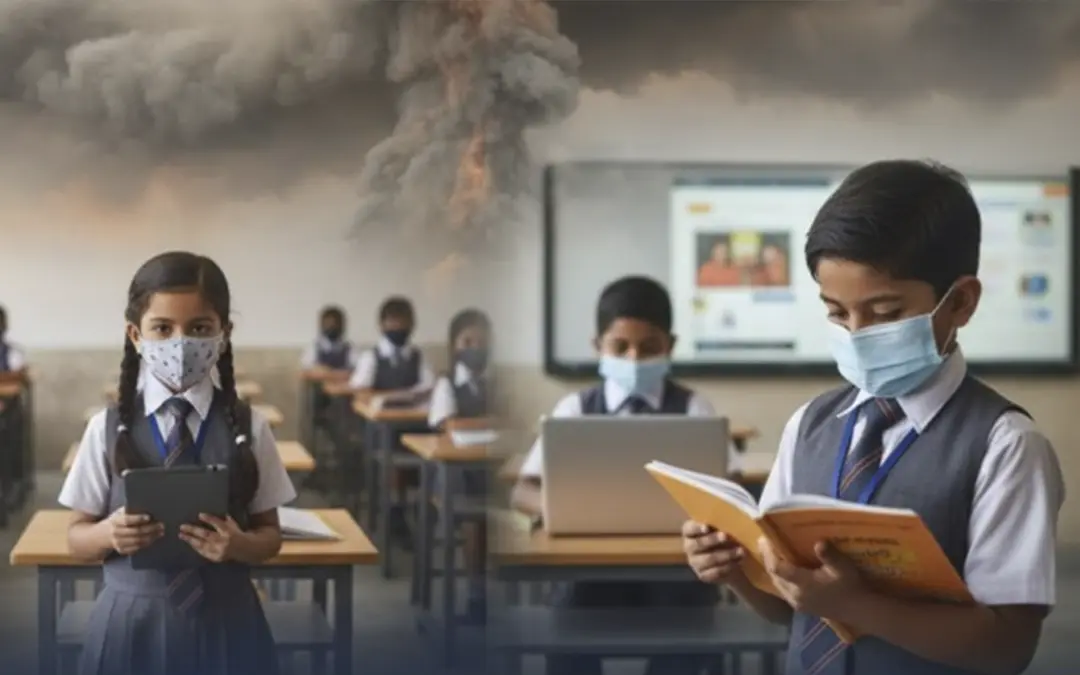NEW DELHI, INDIA—The annual health emergency caused by air pollution has forced a crucial decision regarding children’s safety and education. Following the rapid deterioration of the Air Quality Index (AQI) into the ‘Severe’ category (AQI 401–450), the Delhi government has directed schools to implement hybrid learning for younger students.
The move comes after the central government’s Commission for Air Quality Management (CAQM) invoked Stage III of the Graded Response Action Plan (GRAP) across the National Capital Region (NCR).
Hybrid Mode for Vulnerable Students
The decision targets the most vulnerable group—children up to Class 5—who face the highest risk from prolonged exposure to toxic air.
- The Directive: The Directorate of Education (DoE) has instructed all government and private schools in Delhi to conduct classes in a hybrid mode. This gives parents the option to choose online instruction for their children while physical classes continue for those who opt to attend offline.
- Health Rationale: Authorities emphasized that the decision aims to reduce students’ outdoor exposure while ensuring educational continuity. Schools across the NCR are also suspending outdoor assemblies, sports, and playground activities until the air quality improves.
GRAP Stage 3 Curbs Hit Delhi-NCR
The activation of GRAP Stage III is triggered when the average AQI crosses the 400-mark. The rising pollution, attributed to calm winds, stable atmospheric conditions trapping pollutants, and continued external sources like stubble burning, has necessitated immediate, stringent action across multiple sectors:
- Construction Ban: A complete prohibition has been placed on non-essential construction and demolition activities across the NCR. This includes earthwork, tiling, and plastering, exempting only critical projects like railways, metro construction, and essential healthcare facilities.
- Vehicular Restrictions: The plying of BS-III petrol and BS-IV diesel four-wheelers is now restricted in Delhi and the neighboring districts of Gurugram, Faridabad, Ghaziabad, and Gautam Buddh Nagar.
- Industrial Closure: Industries and brick kilns not operating on approved clean fuels must suspend operations.
The hybrid schooling directive reflects the government’s dual priority: safeguarding public health against the immediate threat of “Severe” air quality while simultaneously implementing broad restrictions designed to pull the AQI back below the danger threshold.
Discover more empowering stories and insightful content like this on YOUxTalks, your go-to destination for inspiration and knowledge.
Follow YOUxTalks on Instagram: https://www.instagram.com/youxtalks











